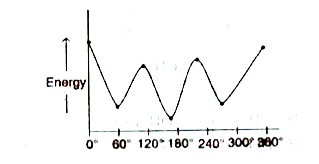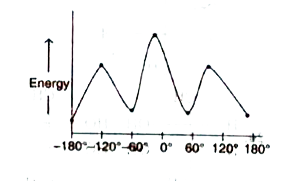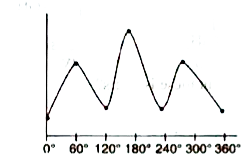Which of the following is not a form of potential energy ?
Food
Water in a dam
A muscle contracting
All of these
The correct Answer is:C
To determine which of the following is not a form of potential energy, we can follow these steps:
1. Understand Potential Energy:
- Potential energy is the energy stored in an object due to its position or state. It is energy that has the potential to do work when released.
2. Identify Forms of Potential Energy:
- Common forms of potential energy include:
- Gravitational potential energy (e.g., water stored in a dam)
- Elastic potential energy (e.g., energy stored in a compressed spring)
- Chemical potential energy (e.g., energy stored in food)
3. Consider the Options:
- The question likely provides several options, among which we need to identify the one that does not represent potential energy.
4. Analyze Each Option:
- If one of the options refers to a process or action involving movement, such as muscle contraction, it indicates kinetic energy rather than potential energy.
- Muscle contraction involves the movement of muscles, which is a form of kinetic energy.
5. Conclusion:
- Based on the analysis, the correct answer is the option that describes muscle contraction, as it is not a form of potential energy but rather kinetic energy.
Final Answer:
- The option that is not a form of potential energy is muscle contraction.
- Potential energy is the energy stored in an object due to its position or state. It is energy that has the potential to do work when released.
- Common forms of potential energy include:
- Gravitational potential energy (e.g., water stored in a dam)
- Elastic potential energy (e.g., energy stored in a compressed spring)
- Chemical potential energy (e.g., energy stored in food)
- The question likely provides several options, among which we need to identify the one that does not represent potential energy.
- If one of the options refers to a process or action involving movement, such as muscle contraction, it indicates kinetic energy rather than potential energy.
- Muscle contraction involves the movement of muscles, which is a form of kinetic energy.
- Based on the analysis, the correct answer is the option that describes muscle contraction, as it is not a form of potential energy but rather kinetic energy.
- The option that is not a form of potential energy is muscle contraction.
Topper's Solved these Questions
- BOOK - ICSECHAPTER - THE LIVING WORLD EXERCISE - Test Your Progress (Fill in the blanks with appropriate words.)30videos
THE LIVING WORLD
- BOOK - ICSECHAPTER - THE LIVING WORLD EXERCISE - Test Your Progress (True or False )32videos
THE LIVING WORLD
- BOOK - ICSECHAPTER - STRUCTURE ORGANISATION IN ANIMALS -ANIMAL TISSUESEXERCISE - REVIEW QUESTIONS (LONG ANSWER TYPE QUESTIONS)12videos
STRUCTURE ORGANISATION IN ANIMALS -ANIMAL TISSUES
- BOOK - ICSECHAPTER - TRANSPORT IN PLANTS EXERCISE - NCERT EXERCISE WITH ANSWER (DIFFERNTIATE BETWEEN )16videos
TRANSPORT IN PLANTS
Similar Questions
Knowledge Check
- Question 1 - Select One or More
Which of the following plots is/are correct?
A B
B C
C DAll are incorrect
DAll are incorrect
In which of the following cases the, potential energy is defined?
View SolutionWhich of the following is potential energy diagram for SN1 reaction?
View SolutionWhich of the following is potential energy diagram for SN1 reaction?
View SolutionIn which of the following cases, the potential energy of the given particles decreases (under the given condition)
View SolutionName the following
Kinetic and potential energy togetherView SolutionIn which of the following forms animal energy is available
View SolutionThe dimensional formula for potential energy is
View Solution

